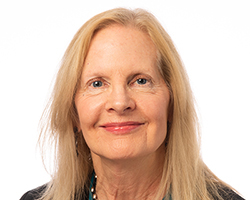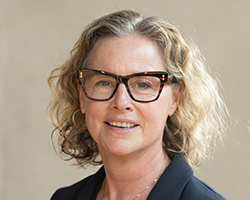“Women’s Leadership Development and the Human-Centered Framework”
Presenters: Karen Hopkins, PhD, MSW, and Megan Meyer, PhD, MSW
The human-centered leadership framework highlights mindful purpose and meaning, self-awareness, empathy and compassion, equity and inclusiveness, adaptability/agility, and resilience that drive personal and others’ achievement. Human-centered leadership works across gender identities; however, the framework resonates particularly with women. Delve into the five pillars of human-centered leadership and explore how this form of leadership is demonstrated in everyday actions.
In this workshop, attendees will:
- Gain exposure to the human-centered leadership framework.
- Apply the practice of the human-centered leadership pillars.
Bios
 Karen Hopkins, PhD, MSW
Karen Hopkins, PhD, MSW
Karen Hopkins is a professor and co-director of the Human-Centered Leadership in Health and Human Services Certificate Program at the University of Maryland School of Social Work. She is the academic coordinator for the Graduate MSW/MBA dual degree and teaches courses in human service management and leadership and performance management.
Her research with nonprofit and public agencies is related to supervision, management, and leadership practices and outcomes, performance management, workforce development, and organizational learning and capacity building.
Hopkins is co-editor-in-chief of the Human Services Organizations: Management, Leadership, and Governance journal, and a national peer reviewer for the Standards of Excellence Institute certification for nonprofits. She has served on the boards of the Network for Social Work Management, Society for Social Work and Research, and Association of Community Organization and Social Administration.
Hopkins earned her PhD from the University of Chicago, MSW from the University of Pittsburgh, and BS from Pennsylvania State University.
 Megan Meyer, PhD, MSW
Megan Meyer, PhD, MSW
Megan Meyer is an associate professor and co-director of the Human-Centered Leadership in Health and Human Services Certificate Program at the University of Maryland School of Social Work. Meyer’s research and publications have examined the practices, impacts, and challenges of community building and social capital development in Baltimore neighborhoods.
Most recently, Meyer formed a collaboration with the University of Maryland schools of pharmacy and nursing to survey social workers and nurses regarding their current knowledge about and desired training needs related to psychedelics and psychedelic-assisted therapy. Surveys are being used to inform the development of programming in the science and therapeutics of psychedelics for the health care workforce.
Meyer earned her PhD and MSW from the University of California, Los Angeles’ School of Public Policy and Social Research and her BA from Hamilton College in New York.


